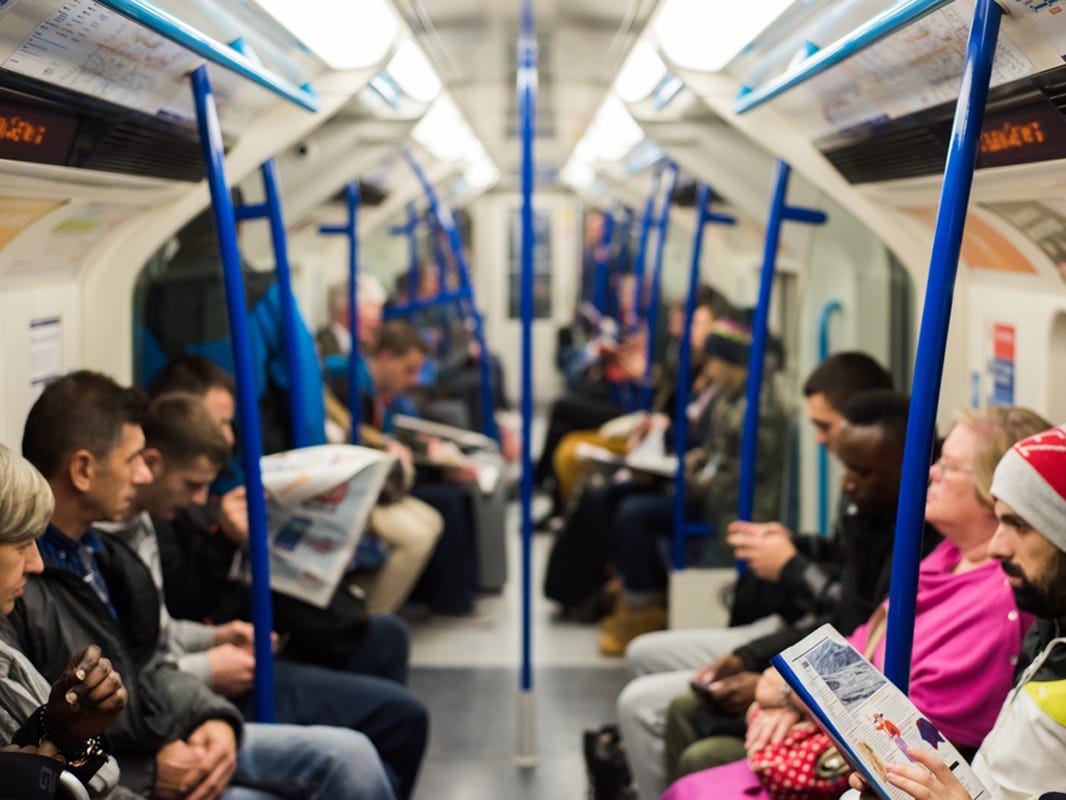Getty Images
- Few workers enjoy the hassle of commuting to the office five days a week.
- Studies show that commuting is the main reason many don't want to stop working from home.
- The daily travel grind is costly, time-consuming, and can be mentally draining.
While Elon Musk may think remote work is "morally wrong," the pandemic proved that being in the office was not essential to do a wide range of jobs.
But many businesses have nevertheless started to make workers come back to the office at least a few days a week, with the likes Amazon, Apple, Google, and Twitter leading the way.
However, many aren't interested in giving up working from home completely - and some would even take a pay cut to keep that flexibility.
And studies suggest that commuting is the main reason why employees don't want to go back to the office full-time, as reclaiming commuting time has allowed many to spend more time with friends, family, or on hobbies.
The toll of commuting
Public transport, especially in places like New York City or London, can be painfully expensive.
In NYC, a single subway ticket costs $2.75, or a monthly MetroCard is $127. In London, a monthly pass will set you back anywhere from $193 to $353 a month, depending on where you live.
Those who drive to work don't fare much better. American drivers spend an average of $1,771 a year on insurance alone, while those in New York also spend about $764 on gas, according to Bankrate, a mortgage-comparison website.
A recent report by Centre for Cities, a UK think tank, suggested that policymakers should "encourage the benefits of office working while reducing the costs to workers of doing so."
But Paul Swinney, its policy and research director, told Insider that employers could say commuting costs are covered by salaries, leaving companies "reluctant to set a precedent."
Satellite offices have been suggested by some as a compromise that would still allow workers flexibility. However, Swinney said they don't always equal face-time with colleagues and mean paying "the cost of travel without getting the benefit."

Shutterstock
But many workers don't just regard commuting as a waste of money. They also see it a "complete waste of time" too, according to Mark Dixon, CEO of flexible office company IWG. "They don't want to do it," he told CNBC in March.
In 2019 the average journey took 27.6 minutes, according to the US Census Bureau, while almost 10% spent at least an hour traveling.
Commuting can also affect mental health, according to Psychology Today. It reported that commuting had "significant psychological and social costs," adding that "commuters can experience boredom, social isolation, anger, and frustration from problems like traffic or delays."
A 2016 report from the UK Royal Society for Public Health found more than half of those surveyed said they suffered increased stress from their commutes.
Regaining some of this lost time may help tackle some of these issues and give people time to focus on more important things in their lives as well as improving their mental health.
Read More
By: [email protected] (Sam Tabahriti)
Title: There's one big reason why workers don't want to go back to the office 5 days a week
Sourced From: www.businessinsider.com/one-big-reason-why-workers-not-back-to-office-commuting-2023-5
Published Date: Sat, 27 May 2023 13:00:00 +0000
.png)





